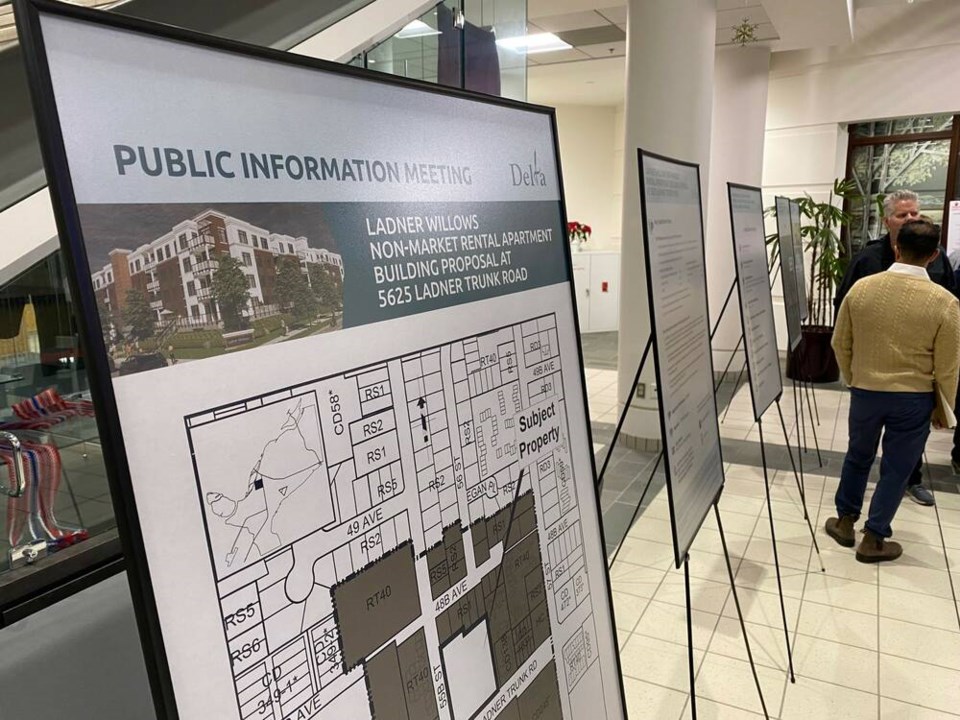Delta staff are continuing to review of an application to redevelop the Ladner Willows low-income rental housing complex before the proposal makes its way to council for consideration.
Requiring an Official Community Plan (OCP) amendment, the application at 5625 Ladner Trunk Rd. would see a 146-unit, five-storey non-market rental apartment built at the site.
The project would be owned and operated by the Red Door Housing Society, which is seeking to redevelop their property to deliver new affordable housing for families, seniors and individuals with disabilities.
The proposed building would be developed with the support of BC Housing through the Community Housing Fund. Over half the units would be suitable for families, 20 per cent would be adaptable and five per cent would be fully accessible.
Meanwhile, Metro Vancouver continues to push forward with its own updated affordable housing plan, to be part of the new regional growth strategy Metro 2050.
A recent report to the regional district’s board of directors outlined the proposed update to the Regional Affordable Housing Strategy including a policy context, project tasks and timelines.
The report identified proposed “impactful policy interventions” focusing on non-market/below-market rental housing delivery and preservation, achieving a 15 per cent regional affordable rental housing target for new units in urban centers and transit corridors, as well as regional coordination and advocacy.
Since 2016, when the most recent Regional Affordable Housing Strategy (RAHS) was adopted, Metro Vancouver and its member jurisdictions have made significant progress toward the high-level housing objectives, however, an affordable housing gap remains and quantifiable and coordinated action will be required to meet regional housing needs, the report notes.
The RAHS update focuses primarily on non-market and below-market rental housing, outlining a number of actions to assist member jurisdictions including estimating the number of affordable rental units anticipated to be delivered under existing housing policies in the region, including units generated through inclusionary housing and density bonus policies, as well as the number of affordable rental units delivered through existing provincial and federal funding programs, such as the Housing Accelerator Fund.
Other actions include identifying affordable housing policy alternatives including a series of policy interventions that are within the control of individual member jurisdictions, or that could be accomplished collectively as region.
The final step would be to develop a strategy to quantify the anticipated costs and timelines required to close the region’s affordable housing gap. The strategy would be adopted in the third quarter of 2025.




